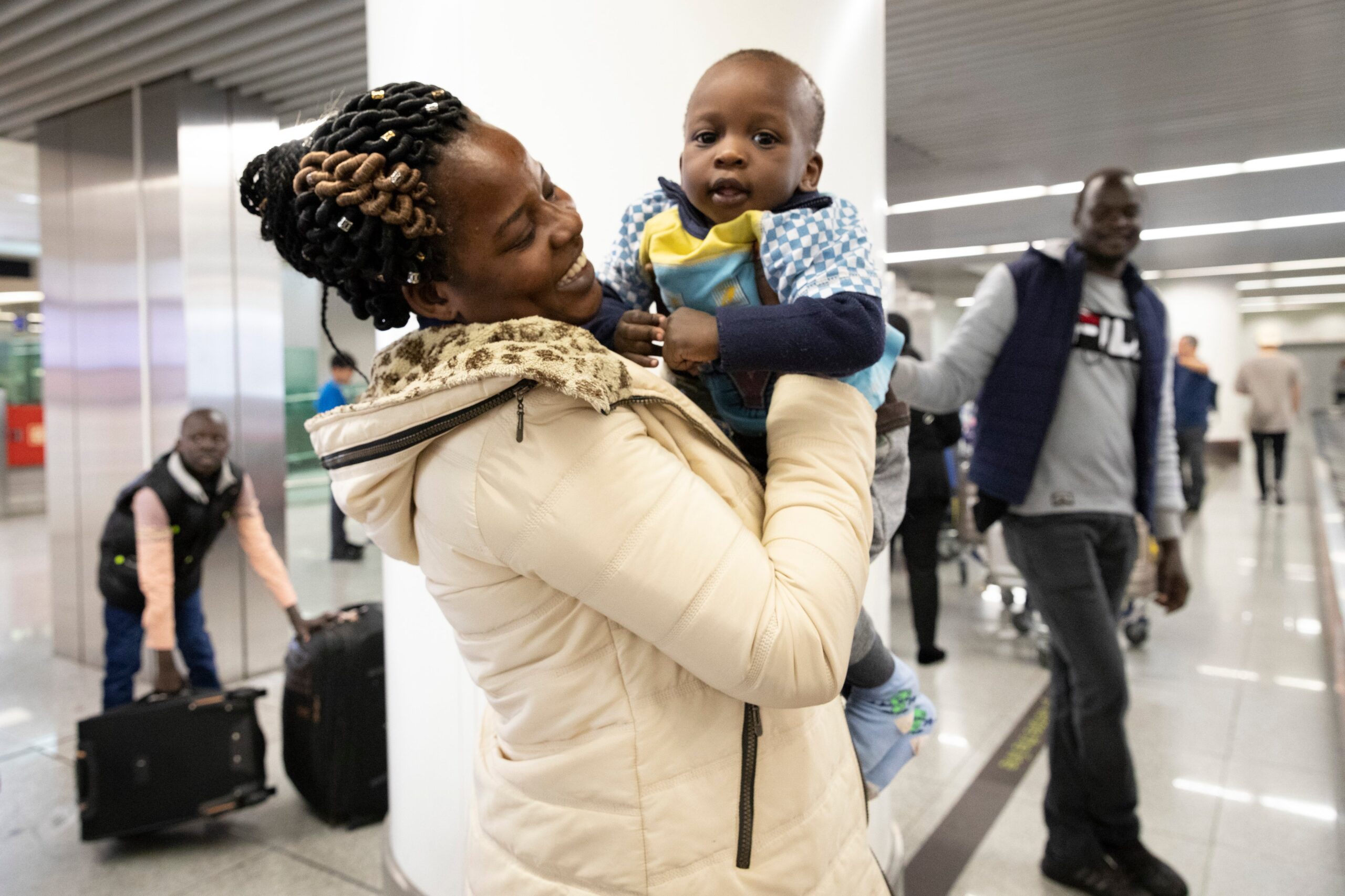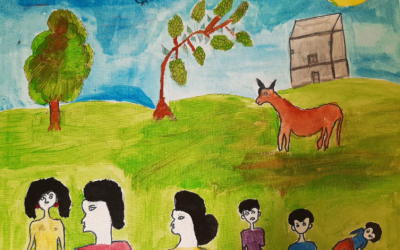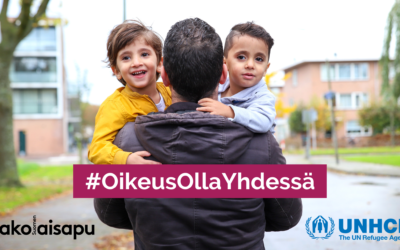
Families belong together
Forced displacement sometimes means families are torn apart. Based on the simple but crucial premise that families belong together, UNHCR has made family reunification a priority.
In the Nordic and Baltic countries, UNHCR works with family reunification in several ways. Through advocacy to improve the access to family reunification and to reduce and remove the many legal, financial and practical obstacles that families face.
We also communicate to decision-makers, the media, and the public on the importance of family reunification, as this is vital for families’ ability to rebuild their lives and integrate into society, as well as for refugees’ mental health.
What is going on?
When conflict, violence, persecution, and human rights violations force people to flee — sometimes immediately, and in the midst of chaos —many families are torn apart. It may take months and sometimes years before they get news of where their loved ones have ended up.
The desire to join close family members is a key reason why refugees may wish to travel to Europe. Some resort to making dangerous and irregular journeys in order to be together, risking their lives, exploitation, and abuse along the way. No family member should have to take such risks; they have a fundamental right to be reunited – something that is called family reunification.
The Nordic and Baltic countries provide refugees the opportunity for family reunification, although in recent years this has become much more difficult. Not being able to reunite with their family can have a significant impact on the mental health of refugees and on their ability to integrate and contribute to their host community. In practice, there are many obstacles – legal, practical, and financial – keeping refugee families apart and leaving family members in prolonged periods of uncertainty and insecurity.
- Legal obstacles: Some countries have imposed strict time limits for refugees to apply for family reunification, making it difficult if not impossible for refugees to provide all documents needed. Other countries apply long waiting times or have lengthy processing times. This leads to unsafe situations and even longer separation. In addition, some countries apply very narrow family definitions and grant different rights to refugees and beneficiaries of temporary protection, even if their rights to a family life is equally fundamental.
- Financial obstacles: Some countries have put in place steep application fees, even for unaccompanied minors, as a condition to be reunited with their family, while other countries have strict income requirements for the refugee to demonstrate his or her ability to support their family members. These requirements can prove difficult to overcome for refugees, who are trying to adapt to life in a new country after having fled conflict, war, and persecution.
- Practical obstacles: Some countries require that family members abroad travel to an embassy to complete formalities or to collect a visa. However, reaching an embassy can be both dangerous and costly, if not completely impossible, as the embassy may be far away or even in a different country, requiring them to cross borders.
What needs to change?
The situation could be different. Politicians and governments have a choice to make family reunification more straightforward, flexible, and accessible to refugees.
UNHCR is concerned about recent restrictions around family reunification – sometimes even as attempts to deter refugees from seeking asylum – and urge countries to remove the obstacles that currently prevent families from reuniting.
Concrete changes could include easing time restrictions, ensuring that fees are kept moderate, removing maintenance requirements and adopting a more flexible approach with regards to the concept of family, acceptance of documents, and requirements to access in person an embassy for identification and issuance of travel documents.
Learn more
Watch the video to learn more about how family reunification can help ensure the human right of family life for refugees and promote safe and legal pathways.
Reports & other resources
Global Platform
Click here to visit the first global platform devoted to family reunification for refugees and other beneficiaries of international protection.
UNHCR's recommendations
In 2023, UNHCR released its recommendations to European countries and the EU institutions on how to make the procedure for family reunification faster and safer for everyone. Link here.
5 facts on Family Reunification
Brochure with 5 facts on family reunification, developed by UNHCR Representation for the Nordic and Baltic Countries. Link here.
News and activities on Family Reunification
UNHCR observations on Swedish law proposal to restrict the right to family reunification
UNHCR’s Representation for the Nordic and Baltic Countries has submitted observations to Sweden’s proposed amendments to the Aliens Act. The proposal presents several restrictions on the possibility to obtain a residence permit in Sweden, for example through...
Art exhibition with children’s drawings show universal importance of family in Helsinki
What does family mean to you? UNHCR asked refugee children in countries such as Libya, Mozambique, Bangladesh and Ethiopia to draw their answers. The results will be on display at Redi Shopping Center in Helsinki in June.
UNHCR and Finnish Refugee Council call on Finland to adopt improvements aimed at strengthening human rights in family reunification
UNHCR, the UN Refugee Agency and the Finnish Refugee Council consider the Finnish government’s draft proposal to facilitate family reunification to be a timely and vital improvement – and we appeal to the Finnish Parliament to adopt the proposal. No one chooses...






